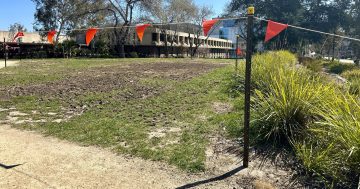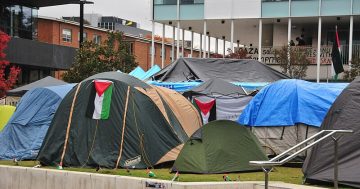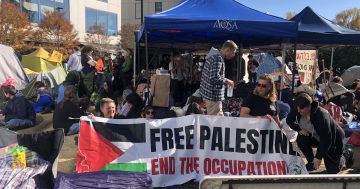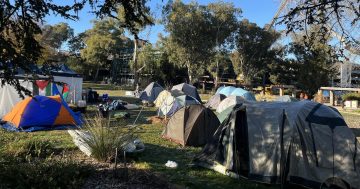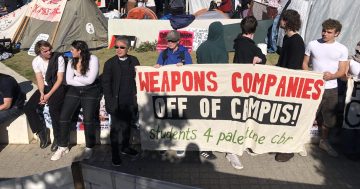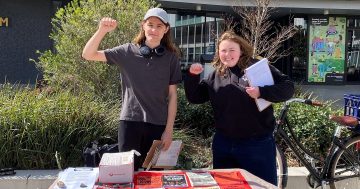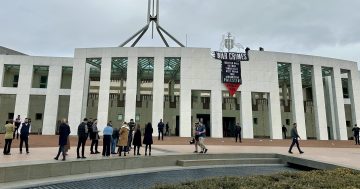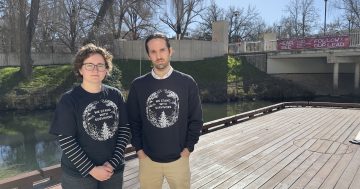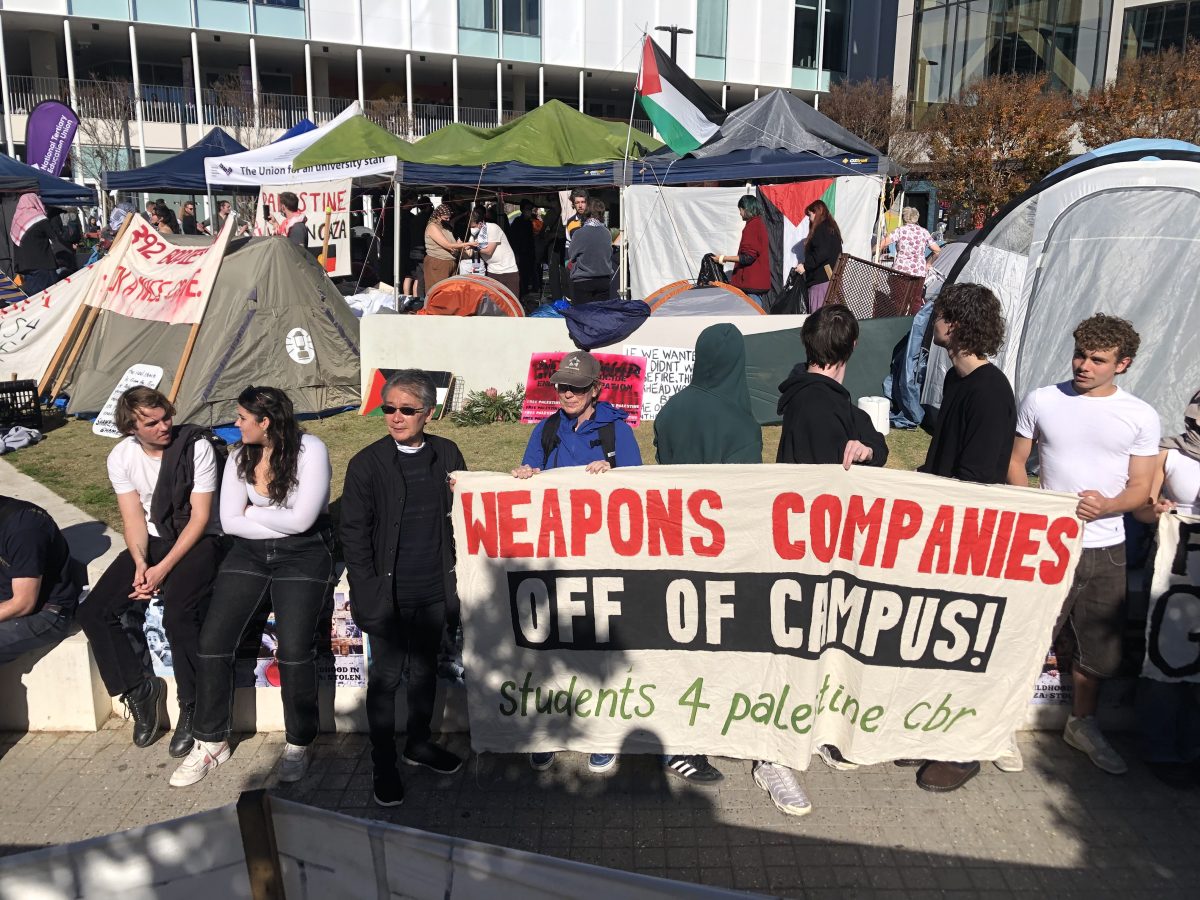
ANU Gaza Solidarity Encampment has held regular rallies since April. Photo: Supplied.
Protesters have rallied nearly every day for months for this moment. Or have they?
The Australian National University (ANU) has agreed to update the policy that governs what sort of companies ANU invests in due to what a recent paper describes as “changing community sentiment”.
But protesters from the campus’s ongoing ‘Gaza Solidarity Encampment’ aren’t convinced this is enough, with one dubbing the review “insulting” and “a public relations ploy”.
Placards emblazoned with messages such as “Weapons off our campus” and “Cut ties with apartheid Israel” have been commonplace on campus since April when hundreds of students set up tents and marquees along University Avenue in solidarity with Gaza.
FOI documents requested by the students showed the ANU held investments in Lockheed Martin, BAE Systems, Northrop Grumman, Boeing and Saab valued at more than $1 million.
This, the protesters argued, meant the ANU was complicit in “genocide”.
An ANU Issues Paper released last week said the council has agreed to review the university’s “socially responsible investment” (SRI) policy.
“Recent advocacy from our community has helped to draw attention to a lack of clarity in the SRI policy on revenue derived from the manufacture and sale of technology with military operations,” the paper reads.
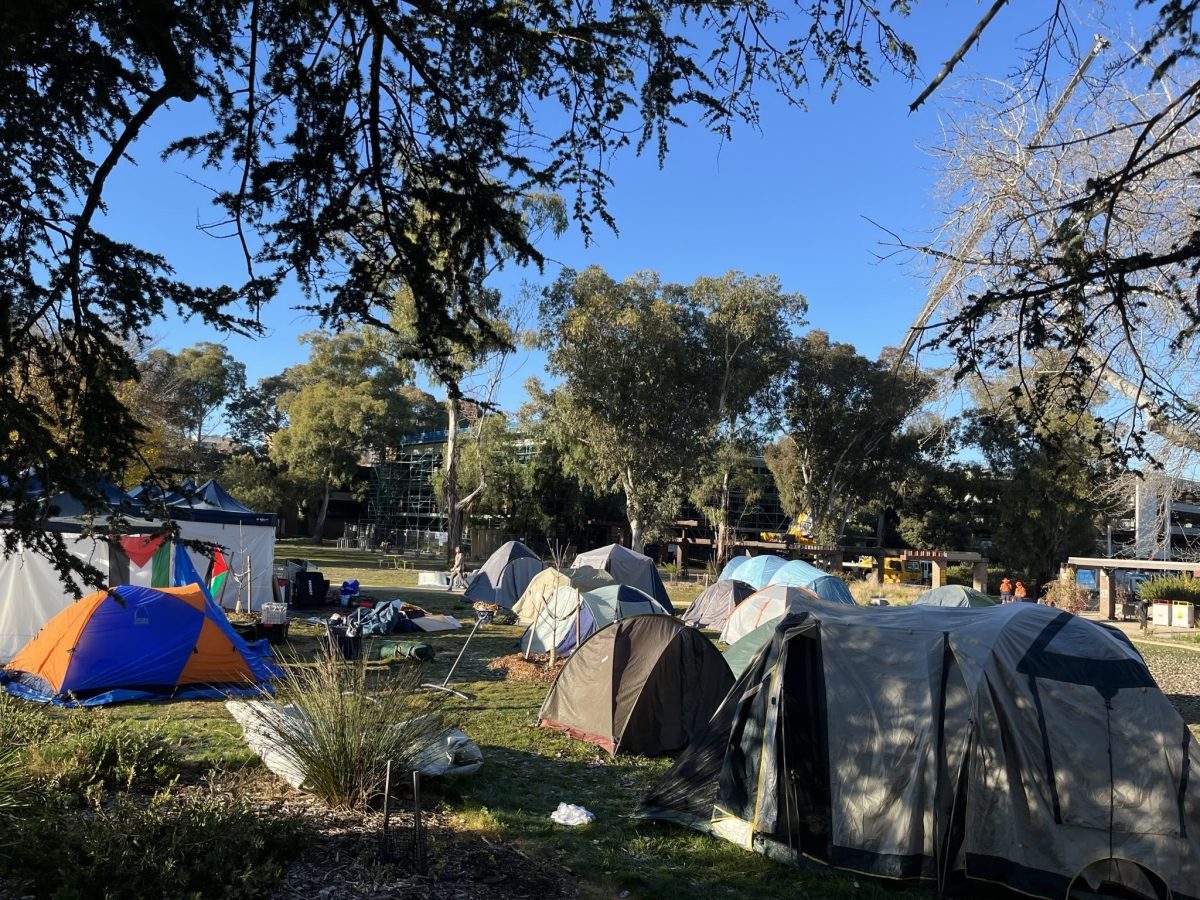
The encampment was forced to relocate earlier this year as its original location blocked a fire evacuation zone. Photo: Supplied.
The ANU holds investments to help fund academic endowments, scholarships and prizes, and to fund the superannuation of employees.
Investment managers appointed by the university choose individual stocks on the university’s behalf under the rules of the current SRI policy, adopted in 2013.
“This includes avoiding investment opportunities that are likely to cause substantial social injury,” the ANU says.
“The SRI policy currently includes negative screens against coal, gambling, pornography and tobacco. If a company derives more than 20 per cent of its revenue from these activities, ANU will not invest in it.”
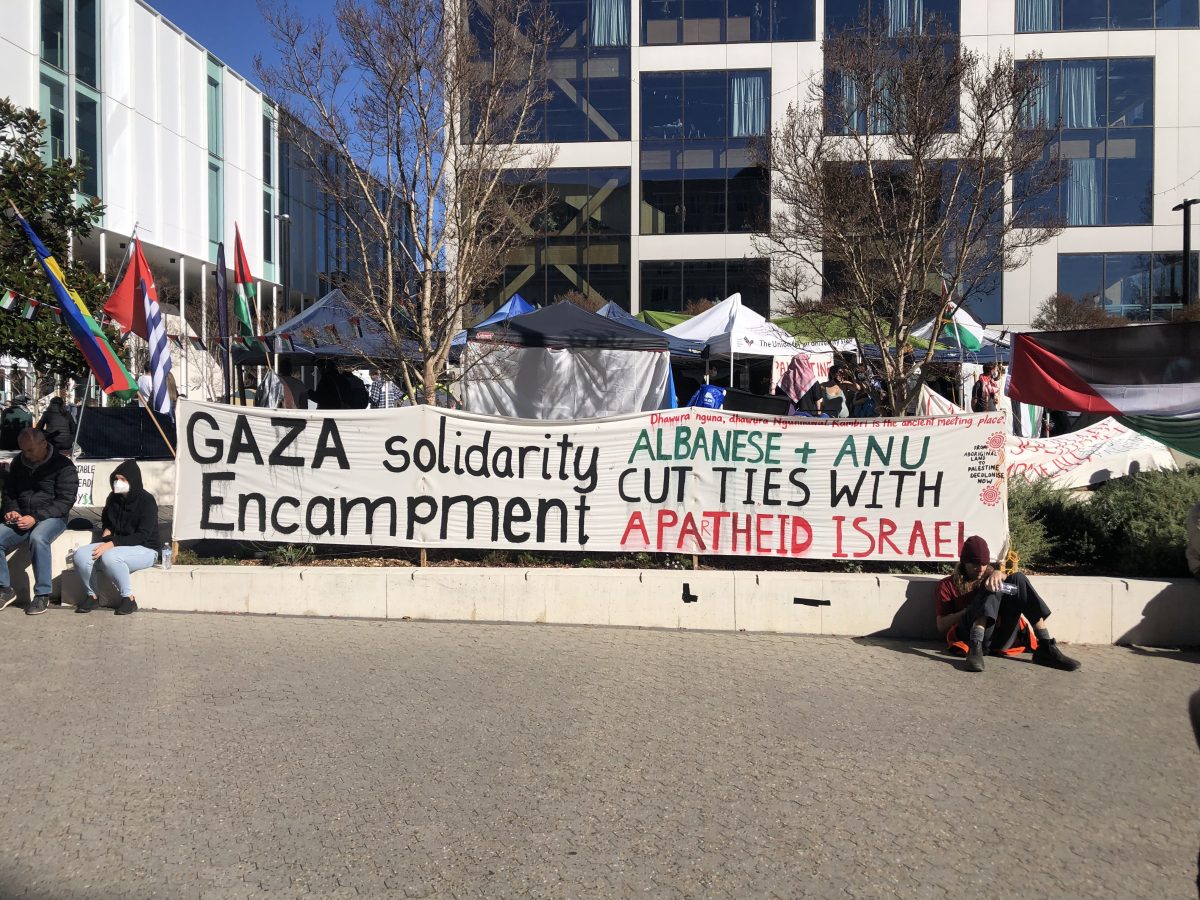
More signs from the ANU protest. Photo: Supplied.
The university says the policy “requires new considerations”, with irresponsible use of artificial intelligence flagged as another possible reason the ANU should not hold stocks in a particular company.
The university welcomed online submissions from students and staff up to 17 July and held an online town hall meeting on 16 July.
“In addition, ANU also provided all ANU staff, students and alumni an opportunity to provide feedback on the current policy, as well as on how they might like to see the policy updated,” an ANU spokesperson told Region.
By the closing date, the university had received almost 800 responses, which they described as “strong engagement”.
Feedback includes suggestions for more investments in “renewable energy and clean technologies; social enterprises and companies with strong labour practices; initiatives for clean water, sanitation, and sustainable agriculture; and community development and support for oppressed populations”.
The spokesperson said this feedback will be “collated and synthesised” by a working group made up of “subject matter experts” and representatives from the ANU Council and various student associations, and presented to the council at its August meeting.
While the ANU Gaza Solidarity Encampment didn’t make any official submission, Nick Reich was among those individual students who did.
He labels the review a “public relations ploy” that misses the mark on ruling out ties to the Israeli military.
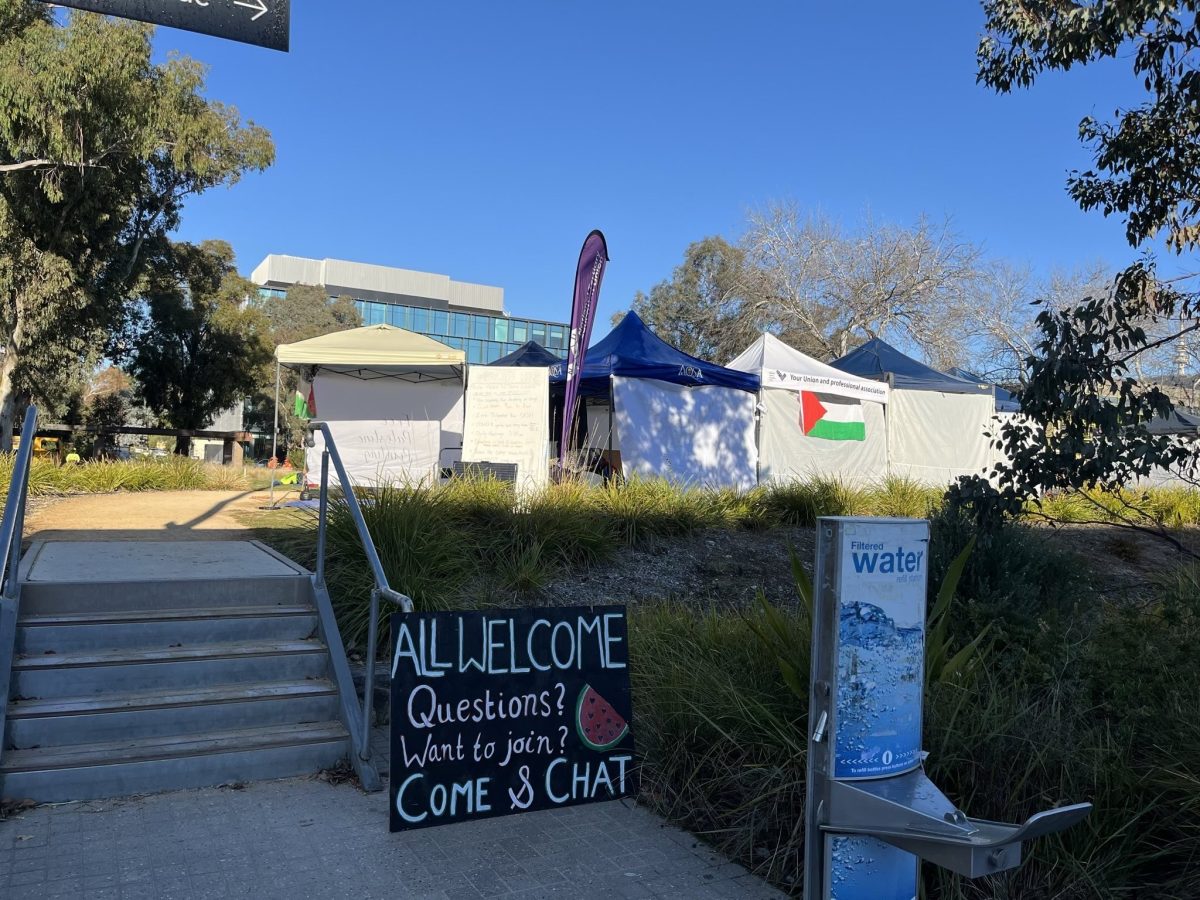
According to student protester Nick Reich, the encampment is “still kicking on”. Photo: Supplied.
“It’s a little bit insulting. The only thing they’ve opened up an investigation into is a review of investments in general. Nowhere in the review have they actually committed to acknowledging genocide, or Palestine at all.”
He and the other protesters, who remain “sticking it out” at the encampment, plan to hold a general student meeting in the coming semester where they will invite members of the ANU Council to witness a vote on a motion calling for the university to cut all ties with weapons companies that supply the Israeli Defence Forces (IDF).
“We want to get hundreds of signatures,” he says, adding that an AGM held over Zoom last semester garnered 600 votes for various pro-Palestine motions.
“The difference is this time, we’re aiming to have that meeting in person.”












